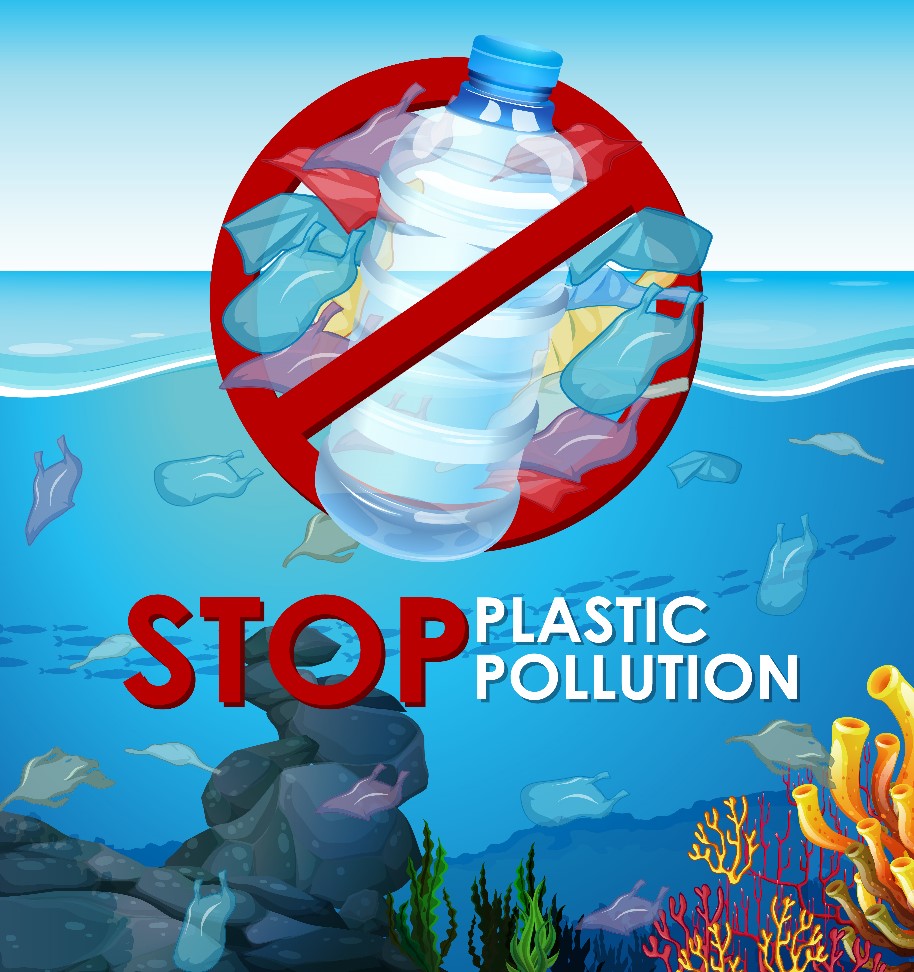Essay on Global warming in English and Hindi
“Welcome to ASKMORETOLEARNMORE, where knowledge is our compass and curiosity our guiding star. Join us on a journey of exploration, learning, and inspiration as we delve into the world of wisdom, In this post we will see Global warming in Hindi and English .”
Table of Contents

Global warming in English
Global Warming: Causes, Effects, and Solutions
Introduction:
Global warming is one of the most pressing environmental and societal challenges of our time. It refers to the long-term increase in Earth’s average surface temperature due to human activities, primarily the emission of greenhouse gases into the atmosphere. This phenomenon has far-reaching consequences for the planet, ecosystems, and human civilization. In this essay, we will explore the causes and effects of global warming and examine potential solutions to mitigate its impacts.
Understanding Global Warming:
Global warming is a specific aspect of climate change, which refers to long-term shifts in temperature, precipitation, and weather patterns. Climate change encompasses various climate-related phenomena, including global warming. The primary driver of global warming is the enhanced greenhouse effect, a process that traps heat within the Earth’s atmosphere.
The Greenhouse Effect:
The greenhouse effect is a natural process that keeps the Earth’s surface warmer than it would be if heat were allowed to escape freely into space. It is essential for maintaining a habitable climate on Earth. Here’s how it works:
Solar radiation from the Sun enters Earth’s atmosphere.
Some of this solar radiation is reflected back into space by clouds, ice, and the Earth’s surface.
The remaining solar radiation is absorbed by the Earth’s surface, warming it.
As the Earth’s surface heats up, it emits infrared radiation (heat) back into the atmosphere.
Greenhouse gases, such as carbon dioxide (CO2), methane (CH4), and water vapor (H2O), trap some of this heat in the atmosphere. These gases act like a blanket, allowing sunlight to enter but preventing a portion of the heat from escaping.
This trapped heat warms the atmosphere and the Earth’s surface, resulting in the greenhouse effect.
Enhanced Greenhouse Effect:
Human activities, particularly the burning of fossil fuels (coal, oil, and natural gas), deforestation, and industrial processes, have significantly increased the concentration of greenhouse gases in the atmosphere. This enhanced greenhouse effect intensifies the trapping of heat, leading to global warming.
The Role of Greenhouse Gases:
Carbon Dioxide (CO2): CO2 is the most prevalent greenhouse gas and the primary contributor to global warming. The burning of fossil fuels for energy and transportation is the major source of CO2 emissions. Deforestation also releases CO2 into the atmosphere because trees, which absorb CO2, are cut down.
Methane (CH4): Methane is a potent greenhouse gas, and its short-term warming impact is much greater than that of CO2. It is released during the production and transport of coal, oil, and natural gas, as well as from livestock and other agricultural practices.
Nitrous Oxide (N2O): Nitrous oxide is another greenhouse gas released from agricultural and industrial activities, as well as from the combustion of fossil fuels and solid waste.
Water Vapor (H2O): While water vapor is the most abundant greenhouse gas, human activities have less direct influence on its concentration. However, its role in amplifying the greenhouse effect by increasing the atmospheric concentration of other greenhouse gases is significant.
The Consequences of Global Warming:
Global warming has wide-ranging and severe consequences for the environment, ecosystems, and human society. Some of the major effects include:
Rising Temperatures: Global warming leads to a rise in average global temperatures, resulting in more frequent and severe heatwaves. It also leads to milder winters and prolonged growing seasons.
Melting Ice and Glaciers: The warming climate causes the melting of glaciers and ice caps, contributing to rising sea levels. This, in turn, threatens coastal areas and low-lying islands.
Sea-Level Rise: As glaciers and ice caps melt and seawater expands due to higher temperatures, sea levels rise. This can lead to coastal erosion, increased flooding, and the displacement of communities.
Ocean Acidification: Increased CO2 levels in the atmosphere lead to higher CO2 absorption by the oceans, resulting in ocean acidification. This harms marine life, including coral reefs and shellfish.
Extreme Weather Events: Global warming intensifies extreme weather events, such as hurricanes, droughts, floods, and wildfires, which can have devastating impacts on communities and ecosystems.
Biodiversity Loss: Many species struggle to adapt to rapid temperature changes, leading to shifts in habitats and ecosystems. Some species may face extinction.
Agricultural Impacts: Global warming affects agriculture by altering growing seasons, increasing the prevalence of pests and diseases, and leading to decreased crop yields.
Human Health: Heatwaves and changing weather patterns can have adverse effects on human health, leading to heat-related illnesses and the spread of vector-borne diseases.
Economic Consequences: The consequences of global warming can have substantial economic costs, affecting agriculture, infrastructure, insurance, and healthcare.
Water Scarcity: Changes in precipitation patterns can lead to droughts and water shortages, affecting communities and ecosystems that rely on freshwater resources.
Solutions to Mitigate Global Warming:
Addressing global warming requires concerted efforts at local, national, and global levels. Here are some key strategies and solutions:
Transition to Renewable Energy: A significant portion of greenhouse gas emissions comes from the burning of fossil fuels for energy. Transitioning to renewable energy sources, such as solar, wind, and hydropower, is crucial for reducing emissions.
Energy Efficiency: Improving energy efficiency in buildings, transportation, and industries can reduce energy consumption and emissions.
Reforestation and Afforestation: Planting trees and restoring forests helps absorb CO2 from the atmosphere. Trees act as carbon sinks and can mitigate global warming.
Sustainable Agriculture: Implementing sustainable agricultural practices, reducing food waste, and improving livestock management can reduce methane emissions and enhance carbon sequestration in soils.
Carbon Pricing: Implementing carbon pricing mechanisms, such as carbon taxes and cap-and-trade systems, can incentivize businesses and individuals to reduce their emissions.
International Agreements: International agreements, such as the Paris Agreement, play a vital role in coordinating global efforts to combat global warming.
Transportation Alternatives: Encouraging the use of public transportation, cycling, and electric vehicles can reduce emissions from the transportation sector.
Circular Economy: Reducing, reusing, and recycling materials and products can reduce emissions associated with manufacturing and waste disposal.
Climate Adaptation: Preparing for the impacts of global warming, such as sea-level rise and extreme weather events, is essential to protect communities and ecosystems.
Public Awareness and Education: Increasing public awareness about global warming, its consequences, and the actions individuals can take is critical for building support for mitigation efforts.
Global Collaboration:
Global warming is a complex and interconnected issue that transcends national boundaries. Addressing it requires international cooperation and a collective commitment to reduce emissions and transition to a sustainable, low-carbon future.
The Paris Agreement, adopted in 2015, is a significant global effort to combat climate change. It aims to limit global warming to well below 2 degrees Celsius above pre-industrial levels, with an aspirational goal of limiting it to 1.5 degrees Celsius. To achieve these targets, countries have committed to reducing their greenhouse gas emissions and enhancing their efforts to adapt to the impacts of climate change.
Challenges and Barriers:
Despite the urgency of addressing global warming, there are several challenges and barriers to effective mitigation efforts:
Political Resistance: Some political leaders and industries resist climate action due to economic interests or political ideologies.
Economic Concerns: Transitioning to a low-carbon economy may involve upfront costs and economic restructuring, which can be challenging for some regions and industries.
Technological Limitations: Some necessary technologies for emissions reductions are still under development, and their deployment may face obstacles.
International Cooperation: Achieving global cooperation on climate change is complicated, as countries have varying interests and capabilities.
Short-Term Focus: Political and economic systems often prioritize short-term gains over long-term sustainability.
Lack of Awareness: Public awareness and understanding of global warming and climate change vary widely, affecting the willingness to support mitigation efforts.
Conclusion:
Global warming is an urgent and complex challenge that demands immediate and sustained action. It is not merely an environmental issue; it affects nearly every aspect of our lives, from our health and well-being to the stability of our economies and the future of our planet.
Addressing global warming requires a multifaceted approach, involving the transition to clean energy sources, improved energy efficiency, sustainable land use, and international cooperation. It also necessitates changes in individual behavior and a greater awareness of the problem’s severity.
While challenges exist, there is hope in the form of innovative technologies, policy solutions, and a growing global movement for climate action. With concerted efforts at all levels of society and government, we can work to mitigate global warming and secure a sustainable future for generations to come. The time to act is now, and the responsibility is shared by all.
Global warming in Hindi

ग्लोबल वार्मिंग पर निबंध (Essay on Global Warming in Hindi):
ग्लोबल वार्मिंग एक ऐसी समस्या है जो हमारे प्लैनेट की बड़ी चिंता है। इसका मतलब है कि पूरे दुनिया भर में जलवायु में तापमान का बढ़ना हो रहा है, और इसके कारण जलवायु परिवर्तन के कई असर दिखाई देते हैं।
ग्लोबल वार्मिंग के कारण बढ़ रहे तापमान के परिणामस्वरूप जलवायु परिवर्तन के कई प्रकार के प्रभाव देखने को मिलते हैं, जैसे कि बढ़ती जलवायु त्राहि, बारिश के बदलते पैटर्न, समुद्र स्तर की वृद्धि, और आवाज घटने का खतरा।
ग्लोबल वार्मिंग के मुख्य कारणों में जलवायु तंत्र में विषाणु उत्सर्जन का बढ़ता प्रमाण शामिल है, जो उद्योग, वाहन, और ऊर्जा उत्पादन के प्रक्रिया के द्वारा होता है। इसके अलावा, वनों की कटाई, और जलवायु परिवर्तन की वजह से बढ़ते जलवायु परिवर्तन के आदान-प्रदान की भी बड़ी भूमिका है।
ग्लोबल वार्मिंग के परिणामस्वरूप हमें जलवायु परिवर्तन के प्रति सजग और कर्मठ बनने की आवश्यकता है। हमें अधिक अहिंसात्मक ऊर्जा स्रोतों का उपयोग करना चाहिए, पेड़ों की रक्षा करना चाहिए, और जल संचयन के उपायों का पालन करना चाहिए।
ग्लोबल वार्मिंग के खिलाफ लड़ाई में हमें साथ मिलकर काम करना होगा, न केवल एक देश के स्तर पर, बल्कि सारे विश्व के सहयोग से। हमें जलवायु परिवर्तन के साथ जीने और आने वाली पीढ़ियों के लिए स्वस्थ और सुरक्षित भविष्य की ओर कदम बढ़ाना होगा।
ग्लोबल वार्मिंग हमारे सभी के लिए महत्वपूर्ण है, और हमें इस समस्या को समय रहते समझना और उसके खिलाफ कदम उठाना होगा।
 India republic day in English and Hindi
India republic day in English and Hindi Essay on India in English and Hindi
Essay on India in English and Hindi Noise pollution essay in English and Hindi
Noise pollution essay in English and Hindi Plastic pollution essay in English and Hindi
Plastic pollution essay in English and Hindi Essay on Air Pollution in English and Hindi
Essay on Air Pollution in English and Hindi Essay on Dussehra in Hindi and English
Essay on Dussehra in Hindi and English Essay on Durga puja in English and Hindi
Essay on Durga puja in English and Hindi Essay on discipline in English and Hindi
Essay on discipline in English and Hindi Essay on social media in English and Hindi
Essay on social media in English and Hindi Global warming in Hindi and English
Global warming in Hindi and English
We sincerely appreciate your time and interest in our content Essay on Global warming in English and Hindi. Your support means the world to us, and we’re thrilled that you chose to visit our page.
At AskXYZ, we’re committed to delivering valuable and engaging content. We want to ensure that your experience with us is exceptional. That’s why we invite you to explore more of our posts/articles. We’re confident you’ll find something that piques your interest.
Your feedback is incredibly important to us. It helps us understand what you love and how we can improve. Please take a moment to share your thoughts or suggestions. We’re all ears!
Explore our other posts/articles and share your feedback with us .
